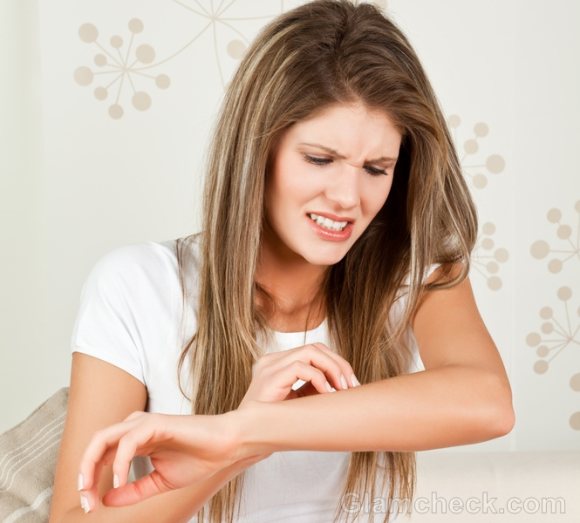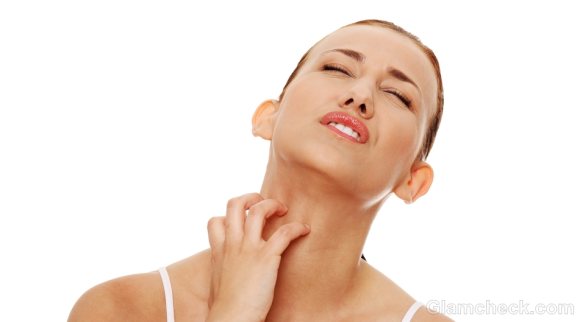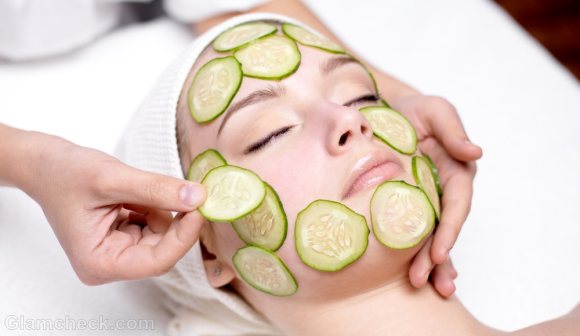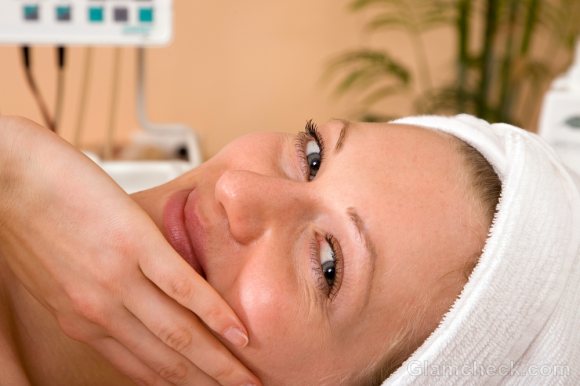Peeling skin can be unsightly, uncomfortable, and embarrassing, especially if it is on a part of your body that you can’t hide like your hands or your face. The area of the peeling skin can burn or hurt, sometimes enough to distract you from your tasks, at others bad enough to make you want to grind your teeth.
 But why does peeling skin occur anyway? What are the symptoms of peeling skin? What can you do to find relief from your peeling skin problem? And how do you protect yourself from peeling skin in the first place so you don’t have to deal with all of this? We’ll get into all of that in just a moment. However, first let’s discover a little more about the skin itself as this will help to better understand what’s going on.
But why does peeling skin occur anyway? What are the symptoms of peeling skin? What can you do to find relief from your peeling skin problem? And how do you protect yourself from peeling skin in the first place so you don’t have to deal with all of this? We’ll get into all of that in just a moment. However, first let’s discover a little more about the skin itself as this will help to better understand what’s going on.
Basic Structure of the Skin
The skin has three layers:
- The epidermis, which is the outer layer the you can see and touch
- The dermis, or the middle later that lies underneath the epidermis
- and the hypodermis or the innermost layer
Each layer has it’s own sub-layers. Each layer also has its own functions. Skin, like hair, is constantly changing. But skin grows and is replaced faster than hair. So your skin is in a state of almost continuous change because it is always in a different state of growth. For example, the epidermis is completely replaced every month. This replacement though may be faster or slower or even interrupted by a variety of factors such as exposure to the sun, pollution, friction, and your health.
What is Peeling Skin?
 Peeling skin occurs when the epidermis or outer layer of skin is directly damaged in some way – like because of sunburn – and the body tries to peel it off so that it can quickly replace it with new, healthy skin. So peeling skin is, quite literally, a part of your body’s natural healing and maintenance process, and is normally nothing to worry about. However, sometimes peeling skin can be an indication of something more worrisome like a disorder of the immune system.
Peeling skin occurs when the epidermis or outer layer of skin is directly damaged in some way – like because of sunburn – and the body tries to peel it off so that it can quickly replace it with new, healthy skin. So peeling skin is, quite literally, a part of your body’s natural healing and maintenance process, and is normally nothing to worry about. However, sometimes peeling skin can be an indication of something more worrisome like a disorder of the immune system.
There are a range of reasons that peeling skin may occur. Precisely because there are so many, it is important to get an accurate and prompt diagnosis of your peeling skin to rule out the more sinister causes.
Causes of Peeling Skin
Here are the most common causes of peeling skin.
- Dry weather can cause peeling skin. Doesn’t matter whether it is hot or cold, if the air is dry, the moisture in your body will have to work overtime to replenish your organs and skin cells. If you do not hydrate sufficiently, one of the first things your body will do will be to stop moisture supply to the skin since it is not an essential function required to keep you alive.
- A multitude of skin disorders can cause peeling skin. Some of them include psoriasis, ringworm, athlete’s foot, and seborrheic dermatitis.
- Some topical treatments for acne that employ retinoids can cause peeling skin.
- Dehydration can cause peeling skin too.
- Peeling skin will result after burns.
- Deficiency of certain vitamins and minerals such as iron, vitamin B, and iodine can also cause peeling skin.
- Peeling skin may also be a result of certain rashes.
- Another thing that peeling skin can be an indication of is an allergy.
- If you get a blister, you can be sure that peeling skin will soon follow.
- Sunburn is a typical cause of peeling skin.
- Heavy sweating can sometimes cause peeling skin as it can dehydrate you to quite an extent
- Some rare forms of cancer like cutaneous T-cell lymphoma can cause peeling skin.
- As mentioned before, disorders of the immune system can also cause peeling skin.
- Peeling skin can be a sign of a fungal or bacterial infection.
- Sometimes, peeling skin may be caused by wearing clothes which are too tight. The constant friction that the skin has to undergo because of the tight clothes can lead to peeling skin.
- Certain fabrics do not allow the skin to breathe. This too can cause peeling skin.
- A vitamin A overdose can also cause peeling skin. It is known as hypervitaminosis A or vitamin A toxicity.
- Certain oral medications can cause peeling skin.
Symptoms of Peeling Skin
Your skin is not just a protective sheath that covers every surface inch of your body – it is an organ. So when you suffer from peeling skin, don’t take it too lightly. You must go about discovering the causes for your peeling skin and remedying it in the same way that you would treat a problem with any other organ in your body. Following are some of the symptoms of peeling skin that you should be on the lookout for.
- Skin is flaky and bits of it start to peel away if you rub even gently.
- The area of the peeling skin has rash like symptoms such as redness.
- Sometimes, peeling skin is accompanied by itchiness since the dry peeling skin irritates the surface of the skin.
- The skin gets unnaturally dry on the area where peeling skin is occurring. This contributes to further redness, itchiness and flaking.
We saw in the causes of peeling skin that some pretty serious diseases can cause peeling skin too. While you may not need to see a doctor if you just have regular peeling skin and can identify it with a cause (sunburn, tight clothes), you should definitely pay a visit to a doctor if you experience the following symptoms in addition to your peeling skin.
- Fever
- Fatigue
- Pain in the joints or muscles
- Weight loss for no reason
Treatment for Peeling Skin
The treatment for peeling skin will vary depending on what has caused your peeling skin. For example, if you know that it is nothing more than an allergic reaction, then you need to figure out what it is that you are allergic to and stay away from it. If you do not know the reason for your peeling skin, you need to visit a doctor for a diagnosis. Usually, peeling skin is best treated by leaving it alone and letting the body do what it has to do to heal you. The normal growth of the skin will take over and eventually the peeling skin will fall off to be replaced by new, healed skin.
If peeling skin persists, there are several over-the-counter topical lotions and ointments that you can apply to reduce inflammation, redness, and itching.
Home Remedies for Peeling Skin

If your peeling skin is because of sunburn, an infection or an allergic reaction, i.e. if there is no serious underlying health condition that needs to be treated for the peeling skin to go away, then you have no choice but to wait it out and just let your body take its course in healing you. You can, however, help to soothe your skin and help it along with some of the following home remedies.
- Cucumber is a very cooling, healing food both when eaten and when applied on the skin. Grate some cucumber and apply to the face for 15 to 20 minutes before washing off with cool water. The cucumber will soothe irritated peeling skin, and it will also prevent dryness.
- Mint is another wonderful food which will help to heal your peeling skin. Squeeze the juice out of fresh mint leaves and apply it to the face overnight. Mint is a natural remedy for several other skin problems and it will help with your peeling skin too.
- Olive oil is another home remedy for peeling skin as well as other skin problems. Simply massage on to the area affected by peeling skin for about 15 minutes and wash off.
- Honey has long been used in face masks for dry skin. Since we are using it for its healing properties, we need not mix it up with something else. You can apply raw honey directly on the patch of peeling skin and wash off in about 40 minutes.
- Oatmeal is a very gentle, natural way to exfoliate the dead skin cells of the peeling skin. You can have an oatmeal bath, allowing yourself to soak in a tub of water mixed with oatmeal, or you can just apply oatmeal with a little water to the areas affected by peeling skin.
Note that you should approach even peeling skin home remedies with caution. Make sure you are not allergic to any of the ingredients used. Buy organic ingredients for the recommended remedies if you can so that you do not inadvertently end up applying pesticides on your skin. If you have overly sensitive skin and you know it, then steer clear of even the home remedies and just let your body do its job. You may just aggravate your peeling skin unnecessarily.
Foods to Help Peeling Skin
What you eat can greatly contribute to helping your body heal faster. Several skin problems are a direct reflection of an improper diet. Fats, vitamins and minerals in particular are needed by the skin to maintain its well-being. A healthy, balanced diet helps accelerate any healing process, so it will help with your peeling skin too. Following are the foods that should form a part of a healthy diet, especially if you want to protect and promote the health of your skin.
- Fish and eggs have incredible amounts of vitamins, minerals, and good fats that are good for your skin.
- Get your daily does of iron in the form of green leafy vegetables, peas, beans, almonds, broccoli, raisins, or cereal.
- Vitamin C is known to be excellent for skin, and will thus help in healing your peeling skin too. Include citrus fruits and tomatoes in your diet.
- Proteins should be an important part of your diet at all times, but more so when you are trying to heal peeling skin. Get your daily protein intake through lentils, pulses, vegetables, nuts, and dairy products like cheese, milk and yogurt.
This is just a guideline of foods that you should be eating, not just to help heal but to prevent peeling skin as well. However, you may have allergies or foods preferences which do not allow you to eat certain items on this list. In this case, you will need to take the time to find alternatives. If you don’t have the time to research and formulate a menu for a healthier diet, visit a nutritionist for a customized meal plan. Don’t neglect to explain that your intention is to heal your peeling skin.
Tips for Peeling Skin
- When peeling skin occurs, you may be tempted to peel it back your self, thinking that you are helping the process. You aren’t. The skin that has peeled off is indeed dead and ready to fall off. However, it is still attached to a portion of skin that is in turn still not ready to break away. Pulling at this and trying to peel it off by force can cause bleeding and even further damage to your already vulnerable peeling skin. So do not peel off the skin. Just leave it alone. Do not pick at it or fidget with it wither. You may be veeeery tempted to scratch, scratch, scratch because the dry peeling skin can itch tremendously. Don’t! You may find relief for those few minutes, but it can make your peeling skin worse by irritating the epidermis, and it can even lead to an infection because of the dirt trapped under your nails.
- If larger portions of skin have already peeled off but are still attached to you, you can cut them off with a scissor.
- Do not rub the areas affected by peeling skin. Even when applying home remedies, lotions or moisturizer, use patting motions instead of rubbing vigorously.
- Try to stay out of direct sunlight while your peeling skin is healing. Sun exposure can aggravate the skin and worsen the uncomfortable symptoms of peeling skin.
- Avoid baths with very hot water. Hot water strips the skin of its natural oils and moisture, thus drying your skin and worsening your symptoms. A warm water bath is more conducive to healing peeling skin.
- Keep your body hydrated. Get your 8 to 10 glasses of water a day. Not juices, sodas or caffeine (although these are fluids, they do NOT hydrate); stick to water.
- While your peeling skin is healing, avoid using chemical-based soaps or hair products as these actually cause more damage to your skin than you are aware of. Try home-made soaps or natural bathing bars instead. You can go back to the chemical-laden stuff after your peeling skin is cured.
Prevention of Peeling Skin
 Peeling skin is a huge hassle, and you may be tempted to not show your face out in public if you do end up getting peeling skin. This will obviously hamper your work, daily errands, and social life. So it makes sense to take preventive measure so that you do not end up with this trying problem.
Peeling skin is a huge hassle, and you may be tempted to not show your face out in public if you do end up getting peeling skin. This will obviously hamper your work, daily errands, and social life. So it makes sense to take preventive measure so that you do not end up with this trying problem.
- Wear sunscreen when you know you are going to be staying out in the sun for long periods of time. If you are going to be exposed to uninterrupted sunshine, as would be the case at the beach or even when you are out running errands in a city without trees, then you must put on your sun screen at least twenty minutes before you leave home. Be generous with the portions you apply.
- Do not wear fabrics that irritate your skin. Even friction can cause peeling skin. Certain fabrics are made of materials that you may be allergic to and not know about. Irritated skin is a sign of an allergy too so steer clear of itchy-scratchy fabrics.
- If you are in a cold, dry climate, make sure to wear moisturizer. Don’t just limit application to your face. Make sure you moisturize your whole body. Choose an unscented moisturizer made of natural ingredients if possible. Remember that your skin is an organ and it absorbs everything you put on it. You don’t want it absorbing a dozen chemicals which can aggravate your skin.
- Remember to drink plenty of water. Don’t wait until you are thirsty to have a sip. Have a cup of water every hour.
- Before starting on any new medication, ask your doctor what the side effects are. If peeling skin is one of them, you can request another medication with which peeling skin is not a side effect.
- We can’t do without our every day beauty products like soaps and shampoos. However, all beauty products today have loads of chemicals in them which you could be allergic to. Long-term use of chemical-based products can lead to skin problems in the future. You can avoid this from happening by using natural products with natural ingredients.
Image: Shutterstock
